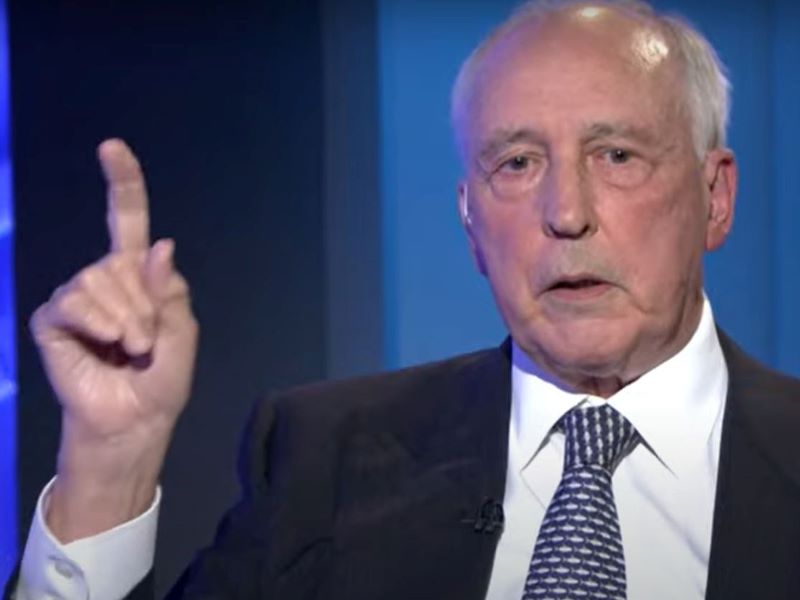Former Prime Minister Paul Keating has backed Chinese government moves to curb market powers and social influence of large technology companies, saying recent regulatory interventions will make China a “more civil society than the United States”.
During a highly anticipated address to the National Press Club, Mr Keating slammed the Australian government’s animosity towards China, which he said includes the AUKUS security pact and switch to long-range nuclear powered submarines.

Mr Keating said China’s rise from colonialisation and poverty had been extraordinary but the new superpower was not out to disrupt the global order, rather its intention is to join it.
“It’s clear to anybody that China does not want to overturn the international system…Even though things are tighter at home politically, there’s also a lot of other good things going on,” he said.
While China’s move towards authoritarianism including state surveillance was concerning, the former Prime Minister said Beijing had outperformed other countries in some aspects of civil society, including reigning in Big Tech.
“Appropriately, [China is] knocking over the big tech platforms which the Americans have not.”
The Chinese government has ramped up regulation on its big tech companies, punishing its biggest companies for what had previously been considered regular market practices. New rules in China have changed how technology companies compete and engage users, and forced some foreign companies to abandon the market.
The biggest Chinese technology companies are expected to report falls in profits and slowing revenue growth this year because of the crackdown, according to analysts.
In the US, while pressure has been mounting and lawmakers have moved antitrust suits, the country has largely failed to curb the biggest companies’ market power and negative impacts on society.
“In America, if you want search, you’ve got Google, if you want social [media] you’ve got Facebook, you want software you’ve got Microsoft – that’s it,” Mr Keating said.
“The Chinese are going to have a much more civil society. They’re going to make sure that they are seeking to have the extremes of wealth moderated, and they want these big platforms operating in a socially good way.
Mr Keating said the interventions will mean China will become “a more civil society than the United States”, which had already become a “crazy land”.
“The average run rate now [is] 24 schools get attacked by shooters every year in the United States. It’s not civil. You saw what Trump did trying to overturn the election. You’ve still got a big pile of Republicans [that] still believe that the current president was not legally elected.”
“The great challenge for the United States is for its re-moralisation. There’s [also] a challenge for China and its moralisation…The key takeaway is China’s showing every reason to remain in the [global] system.”
Mr Keating said recognition and respect of China should not prevent Australia from raising human rights issues, but the same scrutiny must be applied to allies as well, like Indian Prime Minister Narendra Modi, who Mr Keating said had “repudiated the autonomy” of largely Muslim region Kashmir.
“India is an ally. We don’t talk about allies, we only talk about notional enemies.
“I believe Australia should always have the right to speak in support [of human rights]. But this is the key point; you can speak powerfully about the rights of citizens of these countries, but it can’t be the whole conversation…You can’t let human rights discussions supplant wholly and completely the relationship between the countries.”
Do you know more? Contact James Riley via Email.

